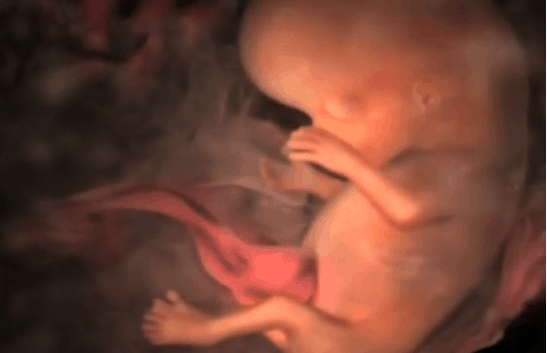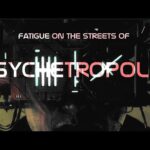In California, a biotech company called Ganogen Inc. is bragging about their new research breakthrough in a procedure that harvests the organs of aborted children and transplants them in animals, where they can grow and then be made available to patients.
On their website, the company calls the process Xenotransplantation and asks the question, “Would you accept an organ from a pig, cow, baboon or a chimpanzee to save your child’s life, or your own?”
The founder of Ganaogen Inc., Eugene Gu, said, “Our long-term goal is to grow human organs in animals, to end the human donor shortage.”
The researchers transplanted the fetal kidneys into adult rats that lacked an immune system (so as to avoid tissue rejection), and connected the animals’ blood vessels to the organs using a challenging procedure that involved tiny stitches, about three to four times smaller than the width of a human hair.
One of the main reasons that previous attempts to transplant fetal organs into animals have failed is due to a difference in the blood pressure between human fetuses and adult animals. In most adult animals, including rats, the average blood pressure is about three times higher than it is in human fetuses. If a fetal organ is transplanted without adjusting the pressure, “the organ basically hemorrhages everywhere,” Gu said.
To get around that problem, Gu’s team developed a device, called an arterial flow regulator, which they fitted around the rats’ blood vessels to decrease the pressure of the blood flowing into the fetal kidneys.
Click here to sign up for daily pro-life news alerts from LifeNews.com
About a month after the researchers transplanted the fetal kidneys into the rats, the scientists surgically removed the animals’ own kidneys. The rats that received the transplanted kidneys survived an average of four months after transplant, and one even survived for 10 months, Gu said. By comparison, a control group of rats that did not receive a transplanted kidney lived for only three to four days after having their kidneys removed, the researchers said.
Thankfully, some science organizations and publications are concerned about the ethical ramifications of using human organs of aborted babies to try and “save others.” Natural News, a health-science organization, said, that if the process proves to be successful on a larger scale, “it forebodes a future in which aborted human babies become a commercial commodity for companies to capitalize on artificial organ development.”
According to CBS News, Bioethicist Arthur Caplan from Langone Medical Center in New York also aired his concerns about the procedure. He said, “American society is morally uncomfortable enough about abortion that growing organs from fetal remains will never be accepted, and will be banned in state after state.”
However, Gu disagrees and says he doesn’t encourage abortions, but if the organs “are available, it is better to use them to save somebody’s life rather than throw them into the trash bin.”
Pro-life advocate and spokesperson for the American Life League, Jim Sedlak, called the transplant program “totally immoral” and “another outlandish use of aborted babies to produce results that humans think are good.” He said, “We are totally opposed to any use of aborted cells from human beings to grow organs or for any other purpose. Someone died in order for these organs to be grown.”
In a new video about the procedure, Ganogen Inc. promotes their findings and glosses over the fact that the organs come from aborted babies. Watch the company’s promotion below.
Here is the article on WND:
Scientists Grow Organs Of Aborted Babies In Animals
Science publications are hailing research breakthroughs in a new life-saving procedure that harvests the organs of aborted children and transplants them in animals, where they can grow and then be made available to patients. The Genetic Literacy Project website calls the process Xenotransplantation and suggests the biggest question would be, “Would you accept an organ from a pig, cow, baboon or a chimpanzee to save your child’s life, or your own?” The statistics it publishes make a case for the need: More than 123,000 Americans require an organ transplant, but fewer than 30,000 will get one, leaving 21 people to die each day “waiting.” A biotech company in Redwood City, California, called Ganogen Inc. is researching the procedure. “Our long-term goal is to grow human organs in animals, to end the human donor shortage,” said Ganogen founder Eugene Gu. But even the science publications are noting the ethical problem. For each organ obtained to transplant into a rat or a pig to later help a needy adult, an unborn baby must be killed. The dilemma is similar to the controversial and so far largely unsuccessful use of embryonic stem cells. Jim Sedlak, spokesman for the American Life League, the largest grassroots Catholic pro-life movement in the U.S., called the transplant program “totally immoral” and “another outlandish use of aborted babies to produce results that humans think are good.” “We are totally opposed to any use of aborted cells from human beings to grow organs or for any other purpose,” he said. “Someone died in order for these organs to be grown.” A video by Ganogen glosses over the source of the organs by euphemistically calling them “discarded.” But obtaining viable human organs requires working in concert with abortion businesses. Ganogen says it already is working on the processes for kidney transplants as well as human fetal heart transplantation. The company video explains it is working to end the donor shortage “through organ engineering.” See the company’s promotion:
The science website Natural News addressed the controversy, reporting Ganogen founder Gu took human fetal kidneys and implanted them into rats bred without immune systems.
“This technology is applicable not just to the kidney, but to every kind of organ in the body,” Gu told Natural News.
Natural News said that if the process proves to be successful on a larger scale, “it forebodes a future in which aborted human babies become a commercial commodity for companies to capitalize on artificial organ development.”
CBS News reported the research raises the ethical questions of whether it is acceptable to use human fetal organs in research or to transplant human organs into animals.
Results of the work have been published in the American Journal of Transplantation.
Arthur Caplan, a bioethicist at Langone Medical Center in New York, told CBS there really isn’t any debate to be had.
“American society is morally uncomfortable enough about abortion that growing organs from fetal remains will never be accepted, and will be banned in state after state.”
At Medical Daily, reporter Susan Scutti said Gu told her his work is funded by family and friends, not the government.
“We feel that our research is more palatable than all the other researchers who use taxpayer money to fund their research involving aborted human fetal tissues, which is the vast majority of major biomedical research labs,” he said.
He argued that he doesn’t encourage abortions, but if the organs “are available, it is better to use them to save somebody’s life rather than throw them into the trash bin.”
WND reported several years ago on the developments in the embryonic stem cell controversy, a procedure created at Johns Hopkins to obtain stem cells, the basic building blocks of human life, without destroying embryonic life.
“Taking a cell from an adult and converting it all the way back to when that person was a 6-day-old embryo creates a completely new biology toward our understanding of how cells age and what happens when things go wrong, as in cancer development,” Elias Zambidis, an assistant professor of oncology and pediatrics at Johns Hopkins Institute for Cell Engineering and the Kimmel Cancer Center, said at the time.
He explained his team took cord blood cells, treated them with growth factors and used plasmids to transfer four genes into them.
“They then delivered an electrical pulse to the cells, making tiny holes in the surface through which the plasmids could slip inside. Once inside, the plasmids triggered the cells to revert to a more primitive cell state,” the research center reported.
The study, published on the PLOS (Public Library of Science) One, is called “Growth Factor-Activated Stem Cell Circuits and Stromal Signals Cooperatively Accelerate Non-Integrated iPSC Reprogramming of Human Myeloid Progenators.”
Johns Hopkins said the team’s work in producing virus-free iPS cells “may speed research to develop stem cell therapies, using nearly all cell types, and may provide a more accurate picture of cell development and biology.”
“Hypothetically, if you’re able to perpetually fix any part of your body, there’s no reason you wouldn’t be able to live as long as you wanted,” wrote Diaz. “We are not there yet, of course, but the path is more open and wider than ever.
“More importantly, this makes the whole political debate about embryonic stem cells absolutely pointless,” he said.
The U.S. government, however, still continues to allow work on embryonic stem cells.
Read more at http://www.wnd.com/2015/03/scientists-grow-kidneys-of-aborted-babies-in-animals/#53hbA8k0ehHIsouR.99










